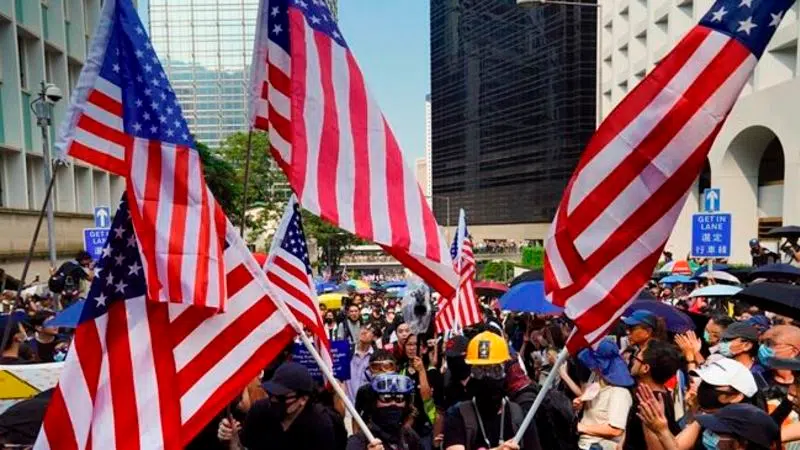
Hong Kong protesters urge Trump to ‘liberate’ their city
HONG KONG — Thousands of demonstrators in Hong Kong marched to the U.S. Consulate on Sunday, urging President Donald Trump to “liberate” their city as they press for more democratic freedoms in the semiautonomous Chinese territory.
Protesters converged at a park in central Hong Kong before marching. They chanted “Resist Beijing, Liberate Hong Kong” and “Stand with Hong Kong, fight for freedom.”
Many of them, clad in black shirts and wearing masks, waved American flags and carried posters that read “President Trump, please liberate Hong Kong.” Riot police stood watch during the march to the nearby U.S. Consulate.
“Hong Kong is at the forefront of the battle against the totalitarian regime of China,” said Panzer Chan, one of the organizers of Sunday’s march. “Please support us in our fight.”


